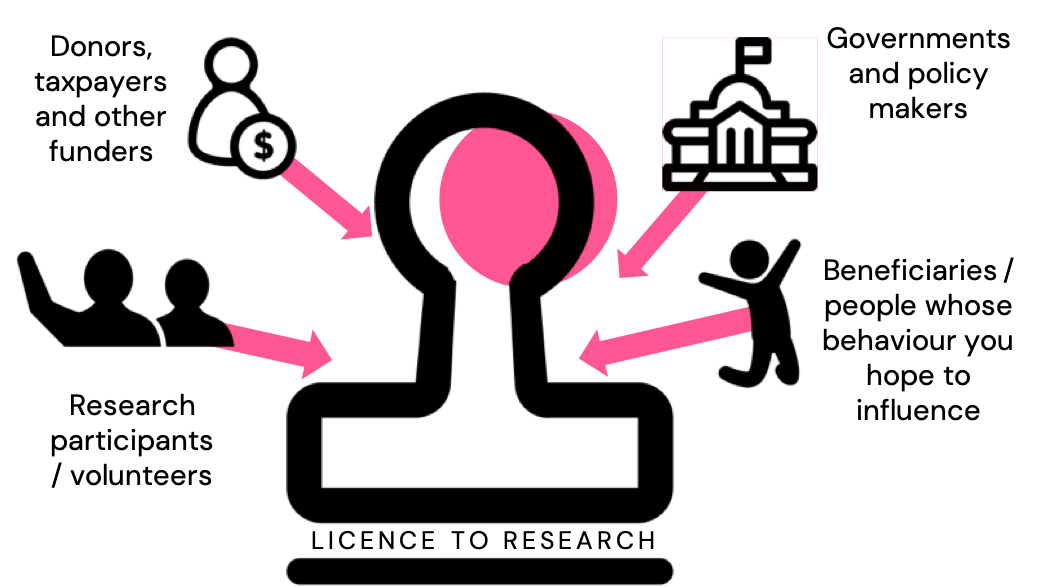Welcome to part 2 of our series exploring what research impact is, why it matters, and how it is achieved. (Catch up on part 1 – what is impact).
The focus on impact is important because it helps keep us focused on the overall purpose – rather than the process – of research. Impact means the outcomes we achieve, not the work we do along the way. Some of the legacy ways in which we undertake research, communicate it and evaluate it, have put up barriers between research and those who may benefit from it.
If we reduce the barriers between those producing research and those that can put it to good use to make positive changes we will be in a much better position to take on the grand challenges faced by the world today.
Funding
One very simple reason for caring about research impact is that more and more research funders require researchers to show what steps they are taking to help broaden the impact of their work – and to provide evidence of what they have achieved.
The people that control research funding are increasingly setting impact assessment criteria. The UK system for this is the Research Excellence Framework, and impact assessment shapes 25% of annual funds allocated to UK universities. Horizon Europe funding requires a detailed exploitation and dissemination plan. The US National Science Foundation requires a statement of the potential broader impacts that a project will lead to as part of the grant submission. The Australian Research Council introduced a dedicated Engagement and Impact assessment in 2018. Italy, France, Belgium and Hong Kong have all incorporated impact into their national assessment systems.
Competitive funding agencies are also getting a lot more serious about dissemination, engagement and impact, with many now requiring detailed plans to be prepared as part of a grant submission, and ongoing reporting throughout the lifecycle of the project. Even though the UK Research Councils no longer use the term “pathway to impact”, they still require that proposals include an indication of how you will achieve impact.
All of this is being driven by mounting competition – with demand outstripping supply for research funding.
Accountability, relevance, trust
There are also growing societal expectations of research. Taxpayers, donors, funders, research participants and beneficiaries are all paying more attention to how research budgets are spent, the relevance of the research, and this is happening in a climate where there have been trust issues between society, and those they perceive as experts.

There is also a growing trend for seeing research within the framework of human rights - the UN’s universal declaration of human rights has “everyone has the right to share in scientific advancement and its benefits” as article 27.
We need to make sure people are benefiting from research – and that they know that!
Making a difference
It is also increasingly common for researchers to want to achieve broader impacts with their research. In one of the studies I have led at Kudos, we found that 95% of respondents said that it’s important for them to show they are communicating their work and achieving broader impacts beyond traditional measures of academic quality such as publication record.
So whether for moral reasons, or for reasons of research quality or relevance, or purely for financial purposes, it‘s increasingly important to try and maximize the impact of our research and to communicate this effectively, right from the very beginning of a project lifecycle. Developing these skills now and building evidence of your capabilities could become very important over the next few years
Getting started with impact
The things you do to communicate and disseminate your research are the vital “missing link” between the research that you do and the impact you hope to achieve. At Kudos we have spent 10 years helping researchers develop impact through better research communication and dissemination. Get started now – you can register for free and then pick the tools and services you need.


